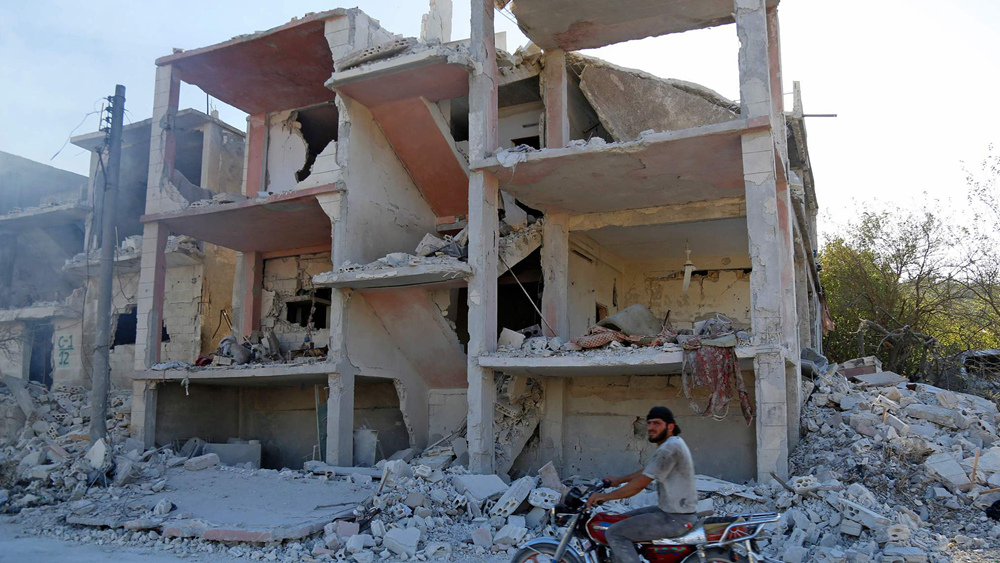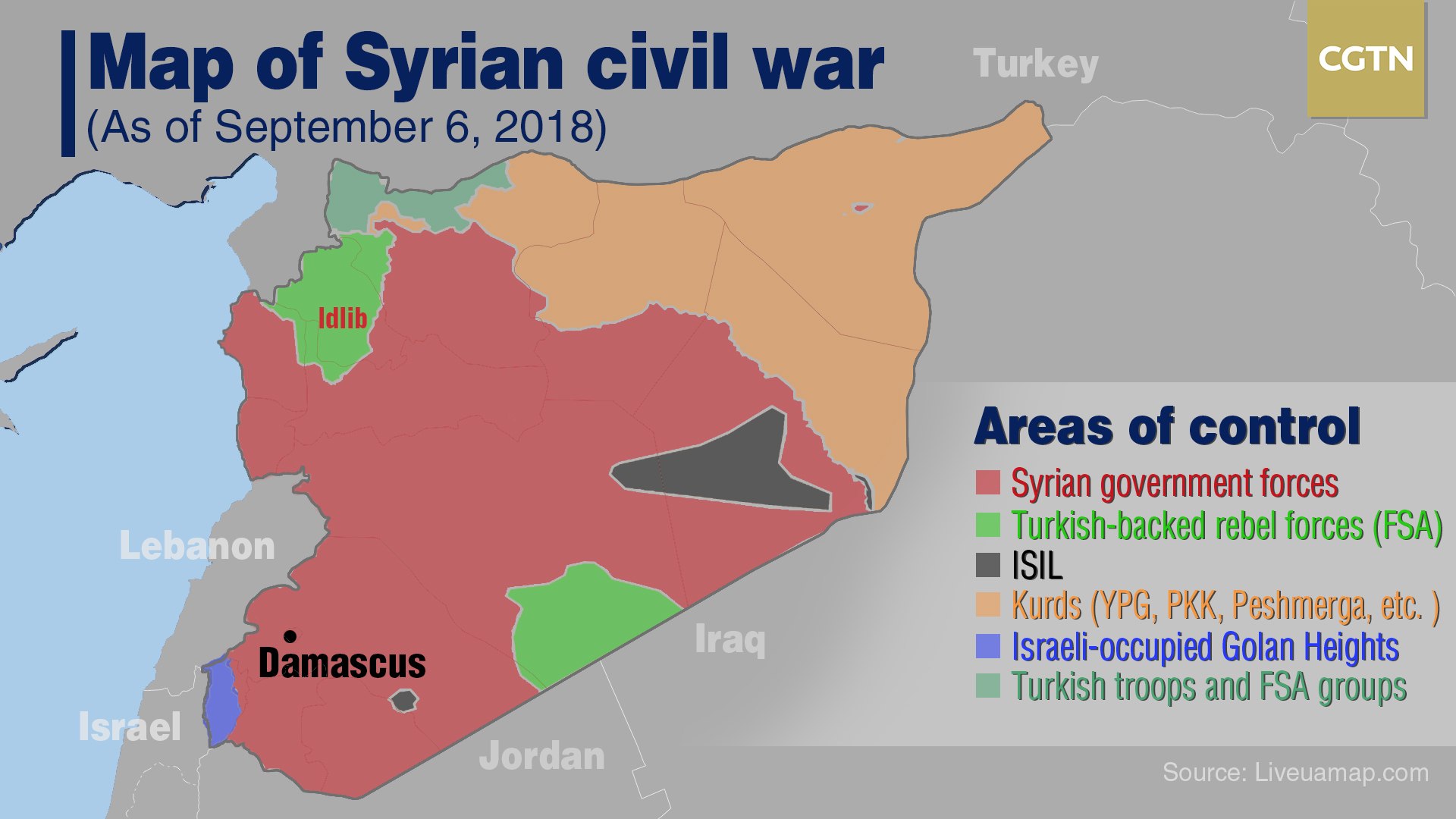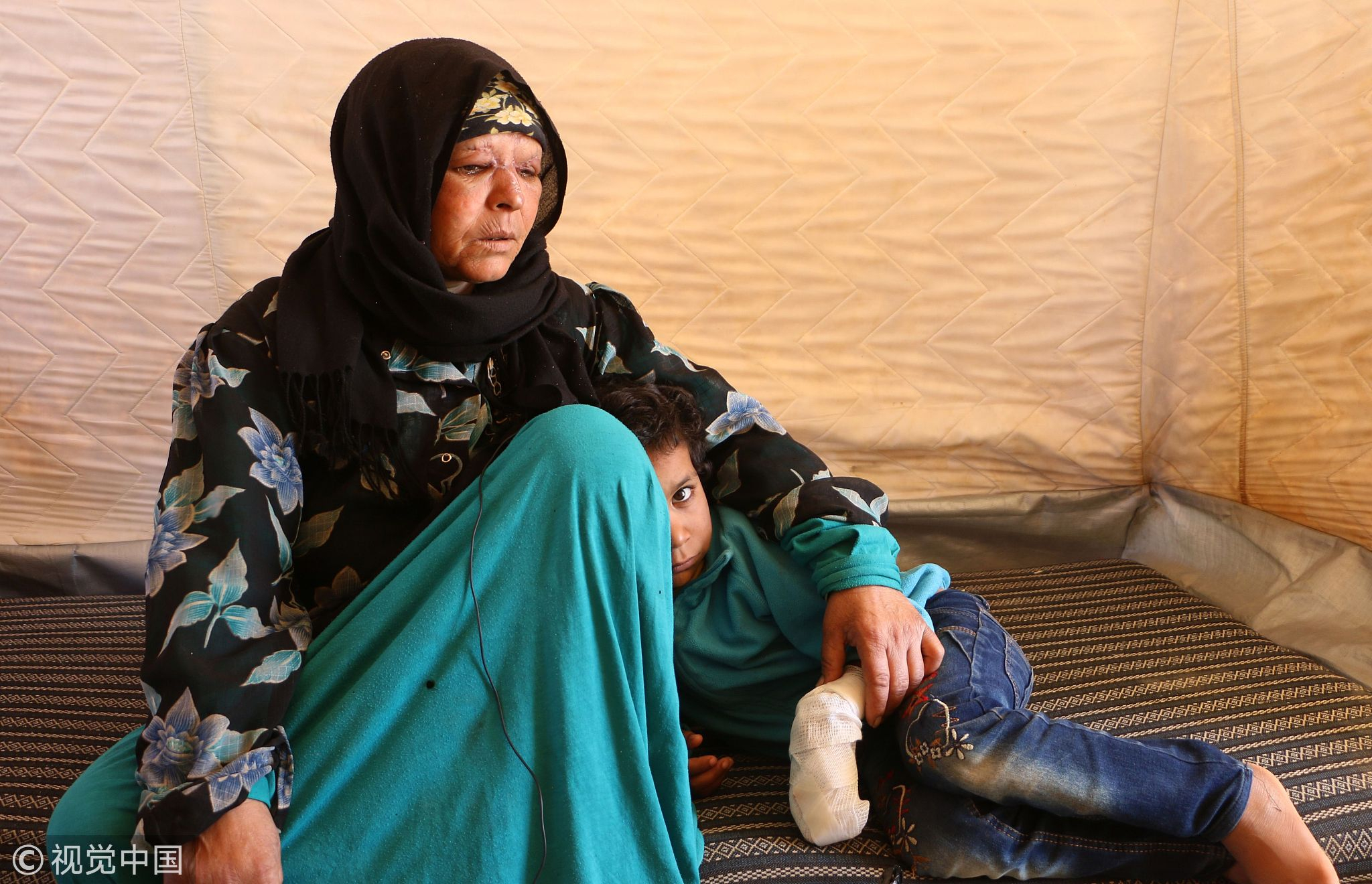
Politics
12:47, 07-Sep-2018
Fears surge before the Idlib operation, locals prepare for the worst
Updated
12:00, 10-Sep-2018
By Michal Bardavid
02:32

Fear has risen in regards to what may happen once the Syrian government and Russian forces carry out a much anticipated offensive in Syria’s Idlib province.
As one of the last rebel strongholds, Idlib is currently the main target for Syria's President Bashar al-Assad. Taking back Idlib from opposition forces may bring Assad closer to victory in this eight-year-old war.
Security expert Huseyin Beyazit says that Idlib's location makes it a very critical spot because "it is very close to Turkey, but also is the cross point of the road that leads to Iraq, Syria and Jordan. If geography determines strategy, this location is definitely a strategic one."
This week, Russia carried out airstrikes in Idlib province, and its defense ministry says they have been targeting "terrorist locations."

Turkish, Russian and Iranian officials are set to meet in Tehran on Friday, September 7 to discuss options in Idlib. The three countries have been acting as guarantor states within the Astana peace process.
Meanwhile, Turkey has 12 observation posts around Idlib province within their agreement and has also increased its military presence with additional tanks along the Syrian border.
In August, Russian Foreign Minister Sergei Lavrov stated that opposition groups who are ready to hold dialogue with the Syrian government should be separated from terrorists. Over the weekend of September 1, Russian naval forces carried out massive military drills in the Mediterranean Sea.
Beyazit says these exercises have strong political messages. He says these military drills say, "If you come here, I will respond."
Beyazit stresses that with these drills Russia intends to send a message to those with the power to attack with "tornado aircraft launched from Cyprus or from US missiles from ships." He says that in these cases, Moscow will not stand by.
The US has issued its own warning, stating that in case of any signs of chemical attacks, Washington will take action.
Russian officials had earlier stated that they expected rebels to stage such an attack.
The Turkish government is concerned the offensive could lead to a new flow of refugees to the border.
Turkish President Tayyip Erdogan said he believes civilians fleeing the fighting won't have many options and so a large proportion will likely head to Turkey, which is already hosting over 3.5 million refugees.
In case of a new refugee influx, efforts are expected to be made on the Syrian side of the border.

Displaced Syrians who were wounded by shelling sit at a camp in Kafr Lusin near the Bab al-Hawa border crossing with Turkey in the northern part of Syria's rebel-held Idlib province, September 6, 2018. /VCG Photo
Displaced Syrians who were wounded by shelling sit at a camp in Kafr Lusin near the Bab al-Hawa border crossing with Turkey in the northern part of Syria's rebel-held Idlib province, September 6, 2018. /VCG Photo
IHH is a humanitarian aid organization that has been actively operating in Turkey since the conflict began.
The organization's international relations and humanitarian diplomacy coordinator Izzet Sahin believes that "in case an attack causes a refugee flow, Turkey's and international aid organizations' priority will be to create a secure area close to the Turkish border and protect and support refugees there instead."
And for those who decide to stay in the area, difficult days are ahead. Civilians inside Idlib have reportedly been making their own preparations by creating makeshift gas masks for potential chemical attacks, building caves around their houses to take shelter during airstrikes and stockpiling on food supplies.
(Cover: A Syrian man rides a motorcycle past a destroyed building in an area that was hit by a reported air strike in the district of Jisr al-Shughur, in the Idlib province, Syria, September 4, 2018. /VCG Photo)

SITEMAP
Copyright © 2018 CGTN. Beijing ICP prepared NO.16065310-3
Copyright © 2018 CGTN. Beijing ICP prepared NO.16065310-3